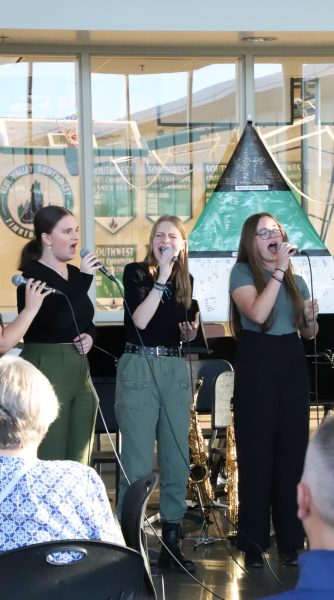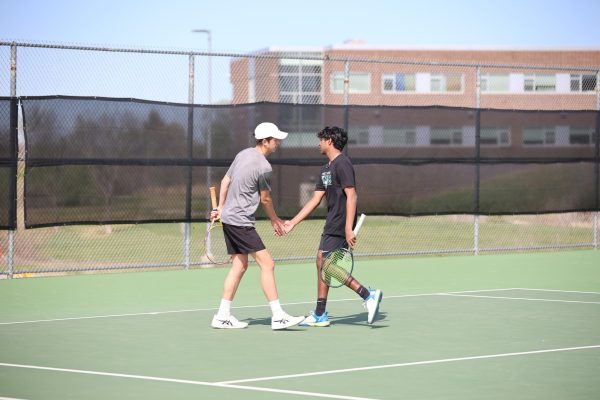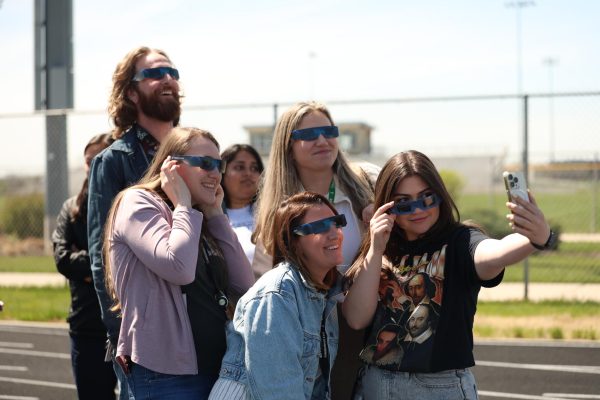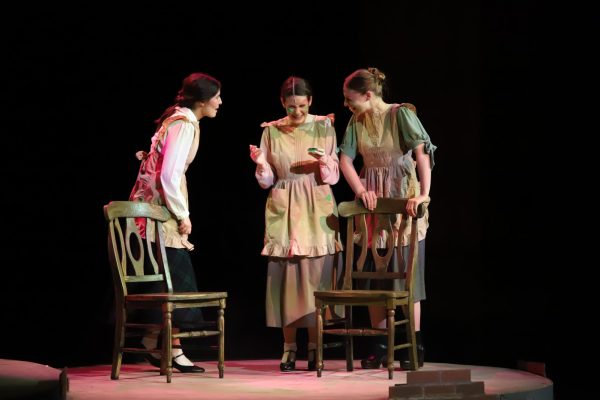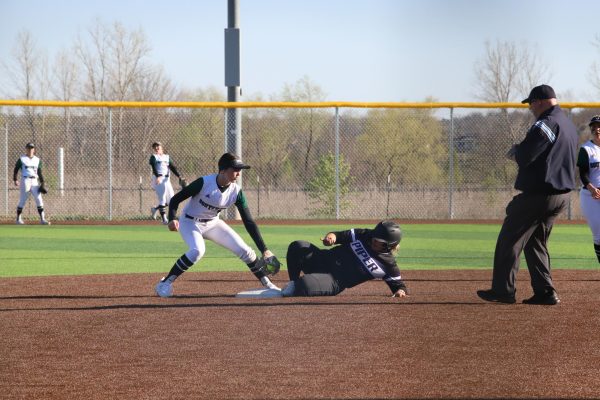The Power of Medicine
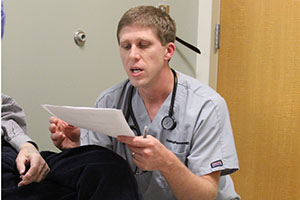
Jenson informs a client about paperwork that he needs to fill out
As the bell rings and all the students rush toward the door, ready to go home and get started on their homework. For most of them the day is over, but that is not the same for the teachers. They still have to grade papers, send emails and set up the lesson plan for the following day. one teacher isn’t heading to the pen and computer, he heads to the KU Urgent Care facility. His name is Chris Jenson.
Jenson, a high school science teacher has been working at the KU Urgent Care facility for the past seven years, he acts as a local physician where he helps people with fractures, sprains, burns, bites and other common injuries, but that wasn’t always the case. Before working at Urgent Care Jenson was an Emergency Room (ER) doctor for nine years. But after a desire for more family time, he made the hard choice to drop the ER and stay with Urgent Care.
“My wife is a doctor too, and we wanted to get some more family time, and thankfully, Urgent care allowed[us] to have a more regular schedule,” Jenson said.
The cases that Jenson sees now at Urgent Care are not nearly as serious as the ones that he used to see while working in the ER. If someone came into the Urgent Care center with a serious problem, Jenson would prepare them for transport to the local hospital.
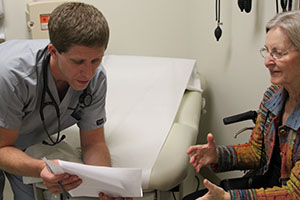
“We don’t typically see serious cases at Urgent Care,” Jenson said. “But sometimes we will have someone walk in and have no idea whats wrong with them, and turn out to have had a heart attack or a stroke.”
Another reason Jenson decided to work at Urgent Care because the hours he works at the office are flexible to his schedule. At the ER, Dr. Jenson worked almost all day long and seven days a week. However, at the Urgent Care office he works part time so that he can still enjoy teaching.
“The main reason that I don’t work full time as a physician is that I love working with kids and med students — thats something I couldn’t do as a full time physician,” Jenson said.
Now just because Dr. Jenson no longer works in the ER doesn’t mean that he doesn’t deal with stressful situations. He has experienced people walk in with heart attacks, strokes and many other life or death situations that any ER doctor would see as well.
“On a regular day, we don’t see the serious cases that we would see at a ER,” Jenson said.“It is a little more laid back and relaxed than working in an emergency room.”
Jobs can be fun, exciting and sometimes a little boring. Although Jenson loves his job immensely the downside is that it’s just another thing to do in the week Without the stress of school, Jenson uses the summer to work more of a full time schedule at the Urgent Care center.
“I believe that it[working at Urgent Care] puts a stress on my free time,” Jenson said “But I love taking care of patients so I enjoy it anyway.”
Some students have taken interest in Jenson and shadowed him at the hospital. A shadower is a person who observes a person who is a professional in the field of business that the shadower want to go into.Jensen loves to make bonds and friendships with his shadowers and one of his most memorable shadowers was alumnus, Kate McCrossen. McCrossen is now a freshman in college training to become a nurse.
“At Urgent Care, I was able to see a variety of things,” McCrossen said. “Mainly it was a flu, cold [or] cough center, so I saw plenty of those cases. By the time I finished shadowing, I was pretty good at identifying a sinus infection, bronchitis, and strep throat because I saw so many cases with him[Jenson] of people with those illnesses”
Many students find shadowing to be a great way to try and see if they would like to continue into that field of work. It also can teach many valuable lessons–lessons that students value as they go through college and into their future profession.
“The best thing I learned from him [Jenson] was definitely how to treat patients,” McCrossen said. “He taught me the right questions to ask patients and when to be serious versus when it is ok to laugh and joke around with the patient.”
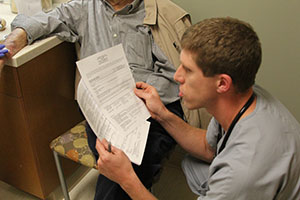
During the school year, Jenson enjoys telling stories to his students about situations he has encountered at Urgent Care. Usually the stories retain to the topic that they are learning about that day in class, but sometimes he tells them just to take up time in the last part of class.
“His job definitely helps him during his teaching methods,” Sophomore Jack Jennings said. “He manages to incorporate all of his experiences into the lessons that he teaches us, and [he] does it well.”
Jenson enjoys his job so much because of the personal rewards that he gets from helping people. Some people would think that being a physician teaches one people skill or responsibility, but Jenson believes it gives him qualities that are essential for working in the modern world. These qualities motivate Jenson to keep coming back to work the job that he loves.
“Being able to quickly solve someone’s problem is really gratifying to me,” Jenson said “If you can make them feel better or resolve an issue they had been having, it’s really satisfying. And it goes along with the theme that you should really only go into medicine if you want to help people.”







